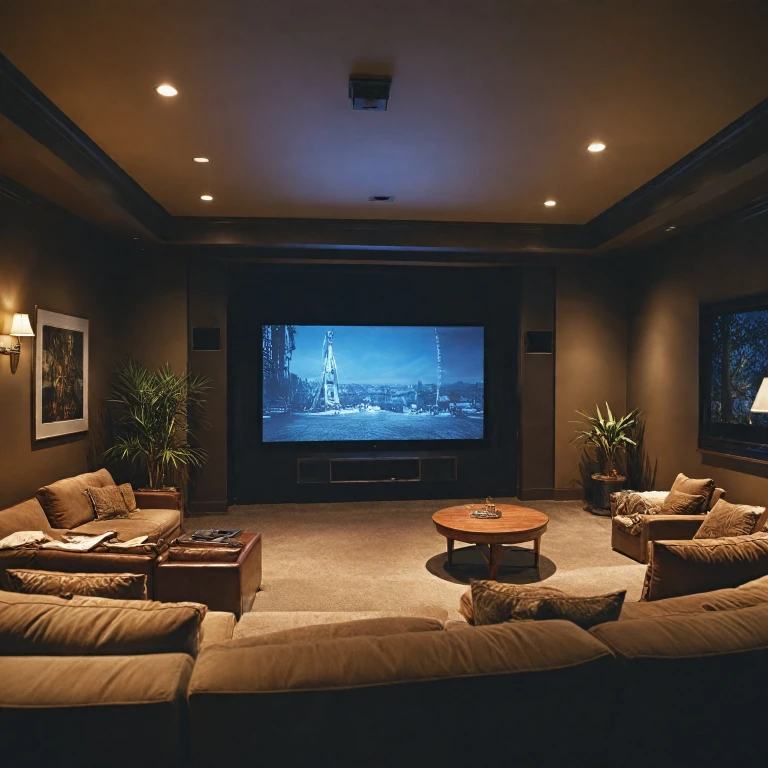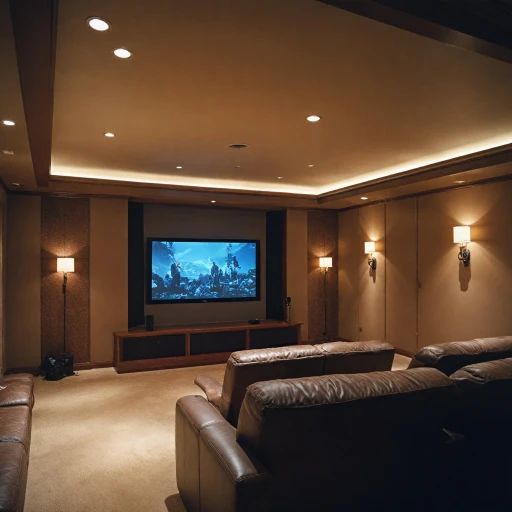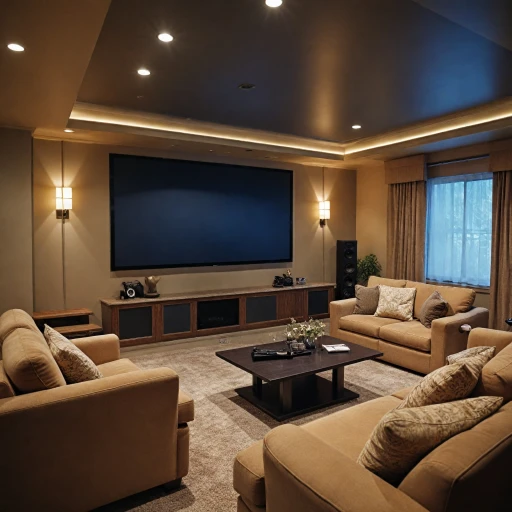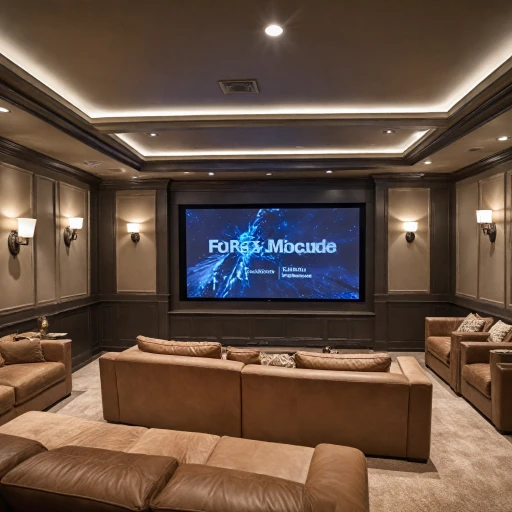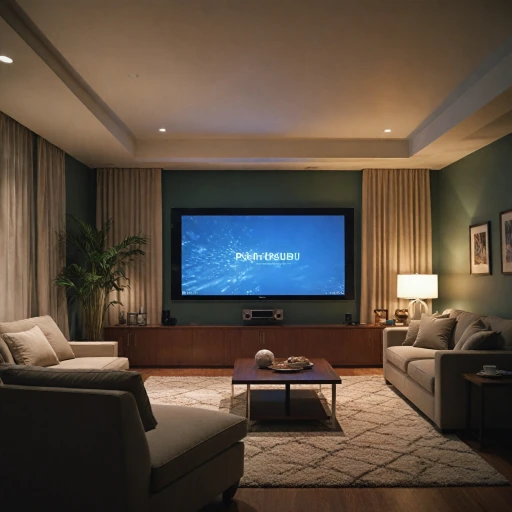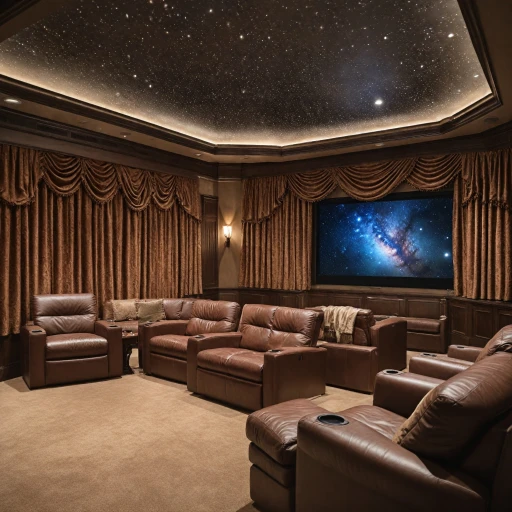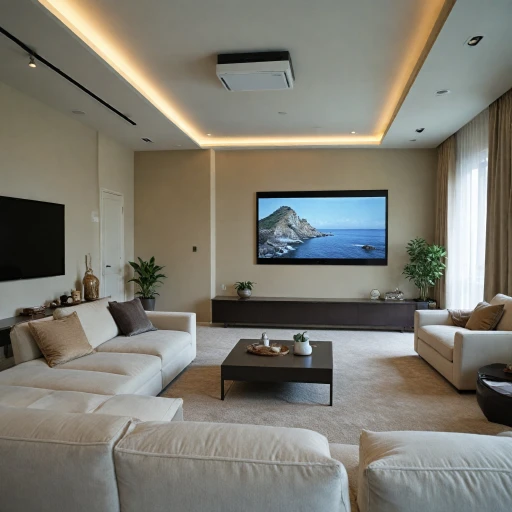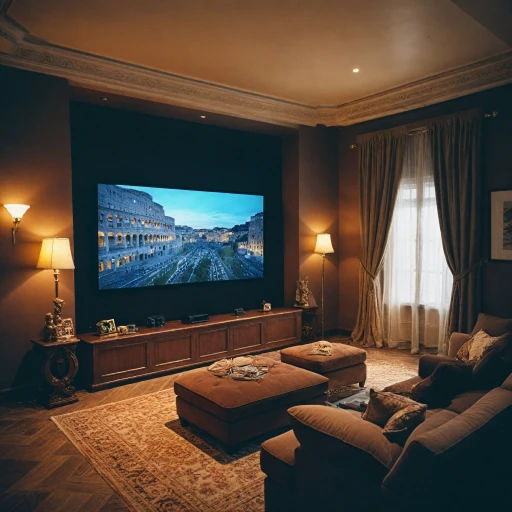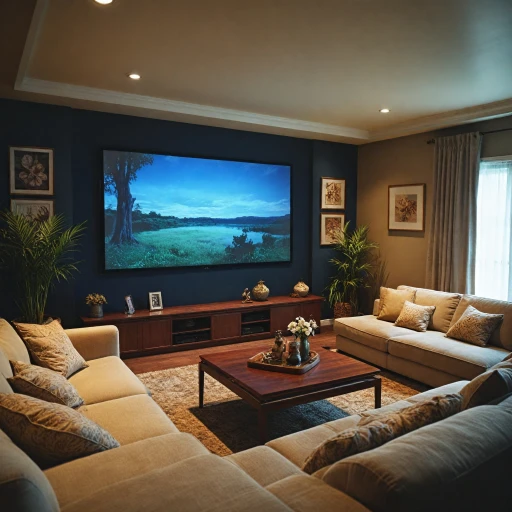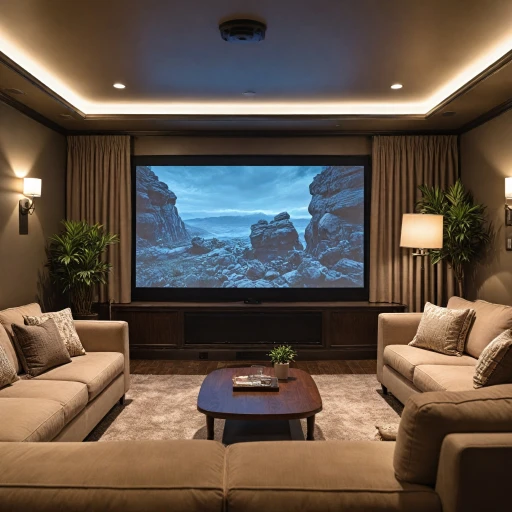Understanding the Importance of a Screen Frame
The Role of a Screen Frame in Your Home Theater
When setting up a home theater, the screen frame plays a crucial role in ensuring you get the best viewing experience. A well-constructed frame holds the screen taut, providing a smooth and even surface for projection. This is essential for maintaining image clarity and reducing any distortions that might occur due to wrinkles or sagging.
Using a high-quality screen frame can significantly enhance the overall performance of your home theater setup. It acts as the backbone for your screen, ensuring that the image projected is as intended, without any distractions. Whether you are using a tripod projector screen or a more permanent fixture, the frame's stability is key.
Key Considerations for Choosing a Screen Frame
When selecting a screen frame, several factors come into play:
- Material: The material of the frame impacts durability and appearance. Aluminum is a popular choice due to its lightweight nature and resistance to corrosion.
- Finish: Options like white finish or bronze finish allow you to match the frame with your room's aesthetics.
- Size: Ensure the frame size matches your screen dimensions for a perfect fit.
- Ease of Installation: Look for frames that come with a complete frame kit, including frame corners and spline, to simplify the setup process.
By understanding these elements, you can make an informed decision that enhances your home theater experience, ensuring your screen is held securely and looks great.
Why Choose an Aluminum Screen Frame?
Benefits and Considerations of Aluminum Screen Frames
When evaluating materials for your home theater setup, aluminum screen frames stand out as a top contender. Their durability and stylish appeal make them a popular choice among enthusiasts. When you are looking for options across the market, choosing the perfect projector screens with stands for your home theater can further guide your decision-making process.
Aluminum screen frames offer several advantages:
- Durability: Aluminum’s inherent strength ensures a robust structure that can withstand wear and tear better than other options.
- Weather Resistance: Unlike wood or plastic, aluminum does not warp or degrade over time, making it an ideal material for screen frames that require stability and endurance.
- Variety of Finishes: Aluminum frames come in different finishes like white, bronze, and mill finish, allowing you to choose the perfect match for your style and decor.
- Size Versatility: Aluminum screen frames can be customized to fit any screen size, offering a flexibility that is essential for personalizing your home theater.
- Ease of Installation: Thanks to modern kits, installing an aluminum screen frame can be a DIY project, with most packs including quick view instructions, frame corners, and everything needed for completion.
Given these benefits, it's not surprising that aluminum screen frames are increasingly popular in the home theater market. Moreover, with options for a roll formed and screen cut and a range of sizes to fit any need, the investment in an aluminum screen frame is a decision many users don’t regret. From practical benefits to aesthetic considerations, aluminum clearly has a competitive edge when you compare it to other materials.
Beyond durability and visual appeal, these frames also provide a cost-effective way to enhance your home theater without the high price tag often associated with premium products. With options available for free delivery, you can easily add these to your cart without worrying about additional hidden costs.
Comparing Aluminum to Other Materials
Material Comparison for Screen Frames
When it comes to choosing the right screen frame for your home theater, understanding the differences between materials is crucial. Aluminum screen frames are often touted for their durability and lightweight nature, making them a popular choice among enthusiasts. But how does it compare to other material options available in the market?
Aluminum vs. Wood
Aluminum frames are known for their resistance to warping and environmental wear, unlike wood frames, which can be susceptible to moisture damage over time. Additionally, aluminum offers a quick view into diverse finishes like white, bronze, and mill finish, making them versatile for different decor themes. While wood may present a classic aesthetic, an aluminum screen frame ensures long-lasting reliability.
Aluminum vs. Steel
Steel is another alternative, often chosen for its strength; however, it is considerably heavier. This can complicate the installation and may not be necessary unless you're dealing with very large screens. Aluminum, in contrast, offers a balanced mix of strength and light weight, which simplifies processes from installation to maintenance. Moreover, aluminum doesn't rust, making it a prime product for long-term use in indoor settings.
Price Considerations
When evaluating price, aluminum frames tend to fall in the mid-range category. They provide a cost-effective solution compared to high-end exotic wood frames while offering more aesthetic versatility than steel. Users can often find aluminum frame kits available in frame packs, which include all necessary components like frame corners and spline, allowing you to add cart items for a comprehensive setup without extra expenses.
For those seeking enhanced connectivity options in their home theater setup, the switch to aluminum frames offers more than just aesthetic appeal. In combination with other screen enhancements, like mesh window screens or built-in repair window systems, aluminum frames seamlessly integrate with various home setups. Attempt different sizes and finishes to find the perfect match that complements your home decor and functional needs effectively.
Installation Tips for Aluminum Screen Frames
Step-by-Step Guide to Installing Aluminum Screen Frames
Installing an aluminum screen frame for your home theater can seem daunting at first, but with the right tools and guidance, it can be a rewarding DIY project. Here are some essential tips to ensure a seamless installation, whether you’re setting up a new frame or replacing an old one.
Gathering Your Tools and Materials
Before starting, ensure you have all the necessary tools and materials. This includes your screen frame kit, which typically contains rolls of screen mesh, frame corners, spline, and the aluminum screen frame itself. Additional helpful items may include scissors, a spline roller, and a utility knife.
Proper Placement and Measurements
Select the appropriate location on your wall, preferably using a level for prime alignment. Measure your windows or walls accurately and compare these measurements with the frame kit dimensions—in an ideal scenario, the frame should match well with your measured size screen.
Assembly Instructions
- Join the frame corners: Connect the four corners of the frame using the provided connectors found in your package. Ensure they fit snugly to maintain stability.
- Attach the mesh: Lay the screen mesh over the frame and affix it using the spline, pushing it into the groove with a spline roller to secure it in place. Trim any excess mesh with a utility knife.
- Secure the frame: Once the mesh is attached, lift the assembled frame and place it on the designated area ensuring that it is square and level.
Installation Considerations
Depending on the manufacturer, frame kits may offer adjustable options such as additional sieve sizes or customization for a white or bronze finish. Consider these options if your project calls for enhanced aesthetics.
Remember, whether you opt for a mill finish or a more refined bronze finish, each stage of your installation should be approached patiently. The aim is to achieve a durable and aesthetically pleasing setup.
Maintaining Your Aluminum Screen Frame
Keeping Your Aluminum Screen Frame in Top Shape
Maintaining your aluminum screen frame is crucial for ensuring its longevity and optimal performance. Whether you have a white finish or a bronze finish, regular care can keep your frame looking new and functioning well.
- Regular Cleaning: Use a mild detergent and water to clean the screen and frame. Avoid abrasive cleaners that might scratch the finish. A soft cloth or sponge is ideal for wiping down the aluminum screen without causing damage.
- Inspect for Damage: Regularly check the screen mesh and frame corners for any signs of wear or damage. If you notice any issues, consider using a repair window or build repair kit to address them promptly.
- Prevent Corrosion: Although aluminum is resistant to rust, it can still corrode over time. Ensure that your screen frame is dry after cleaning to prevent any moisture-related issues.
- Check the Spline: The spline holds the screen in place within the frame. Over time, it may loosen. If this happens, consider replacing it to maintain a tight fit.
By following these maintenance tips, you can ensure that your aluminum screen frame remains a valuable part of your home theater setup. Whether you opted for a mill finish or a more sophisticated prime option, regular upkeep will help you get the most out of your investment.
Enhancing Aesthetics with Aluminum Screen Frames
Elevating the Aesthetic Appeal of Your Space
While functionality is crucial, the aesthetic component of a home theater setup should not be overlooked. An aluminum screen frame serves not only as a structural element but also as a stylish addition to any room. Its sleek design contributes to a modern interior look.
Several factors make an aluminum frame a visually appealing choice for your screen setup:
- Elegant Finishes: Aluminum frames are available in a variety of finishes, including mill, white, and bronze. These options allow you to match the frame with other components of your home theater system, creating a cohesive look.
- Durability Meets Beauty: With their ability to maintain their luster over time, aluminum frames provide enduring beauty without sacrificing durability. They resist corrosion and wear better than many other materials.
- Custom Size Options: Whether you need a frame for a small or large screen, the size selections offer flexibility to accommodate any project. Precisely measured frame corners ensure a snug fit.
Additionally, many aluminum products include kits and frame packs, which often come with a clear, easy-to-follow instruction manual. These kits simplify the process of achieving a professional finish and allow you to customize your installation to suit your aesthetic preferences. Frame kits might also include essential tools like splines and rollers, facilitating a complete, package free of stress.
For those who prefer to compare options before making a decision, products are conveniently available online, sometimes offering free delivery to further enhance your purchasing experience. This enables you to add your preferred kit to your cart and proceed with confidence, knowing you’ve chosen a product that balances price with quality and aesthetic appeal.
